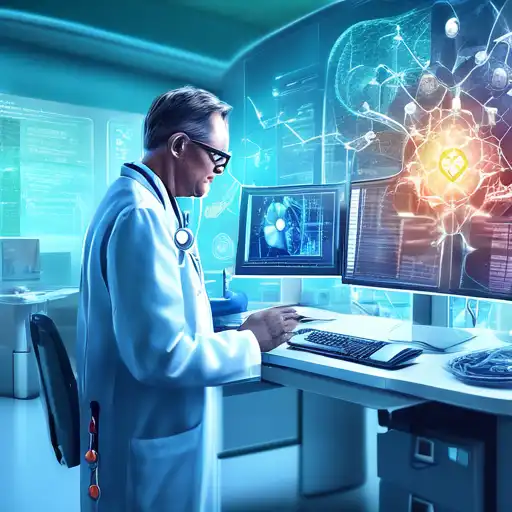The Transformative Impact of Data Science on Modern Healthcare
In the rapidly evolving world of healthcare, data science has emerged as a cornerstone of innovation, driving unprecedented changes in how care is delivered, diseases are diagnosed, and treatments are personalized. This article explores the multifaceted ways in which data science is reshaping the healthcare landscape, offering insights into its current applications and future potential.
Revolutionizing Patient Care with Predictive Analytics
One of the most significant contributions of data science to healthcare is the advent of predictive analytics. By analyzing vast datasets, healthcare providers can now predict patient outcomes, identify at-risk individuals, and intervene proactively. This not only improves patient care but also significantly reduces healthcare costs by preventing unnecessary hospitalizations.
Enhancing Diagnostic Accuracy with Machine Learning
Machine learning, a subset of data science, is transforming diagnostic processes. Algorithms trained on thousands of medical images can detect anomalies such as tumors or fractures with accuracy surpassing human experts in some cases. This technology is particularly beneficial in areas with limited access to specialist care, democratizing high-quality diagnostics.
Personalizing Treatment Plans Through Genomic Data Analysis
Data science is at the heart of personalized medicine, where treatment plans are tailored to the individual's genetic makeup. By analyzing genomic data, scientists can identify which treatments are most likely to be effective for a particular patient, minimizing side effects and improving outcomes. This approach is revolutionizing the treatment of complex diseases like cancer.
Streamlining Healthcare Operations with Big Data
Beyond patient care, data science is optimizing healthcare operations. Big data analytics enable hospitals to manage resources more efficiently, predict patient admission rates, and reduce wait times. This operational efficiency not only enhances patient satisfaction but also allows healthcare providers to serve more patients effectively.
Challenges and Ethical Considerations
Despite its benefits, the integration of data science into healthcare is not without challenges. Issues such as data privacy, security, and the ethical use of patient information are of paramount concern. Ensuring that these technologies are used responsibly is crucial to maintaining patient trust and safeguarding sensitive health information.
In conclusion, data science is undeniably changing the face of healthcare, offering tools and technologies that improve patient care, enhance diagnostic accuracy, and personalize treatment. As the field continues to evolve, it promises to unlock even more possibilities for improving health outcomes and operational efficiency. However, navigating the ethical and privacy challenges will be essential to fully realizing its potential.
For more insights into how technology is transforming healthcare, explore our articles on medical technology and big data in healthcare.
